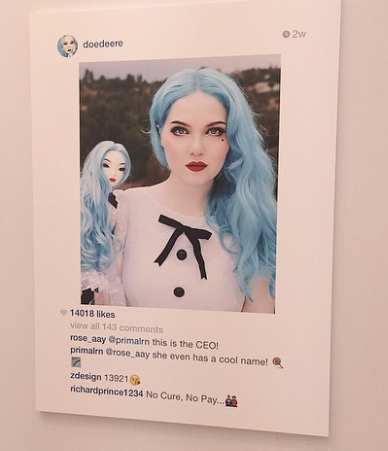Few art law cases have received as much attention as that of Richard Prince and his dispute with Patrick Cariou over the latter’s Yes, Rasta photographs that Prince altered, defaced, and otherwise rearranged for his Canal Zone series. Prince has now garnered renewed attention for his appropriation of Instagram images in a set of works he has been selling at a Gagosian Gallery show called “New Portraits" (and in various other venues over the last few months). He escaped liability for infringement of Cariou’s pictures (though the case settled after remand; several infringement claims were still in play when the parties settled). Can he do so again? If this recent effort is not infringement, it certainly begs the question of whether the fair use exception has swallowed the rule. Lastly, Instagram itself may have prohibited the entire exercise in its terms of use, a possible avenue to short-circuit the entire copyright exercise.
Fair Use Fool me Twice, Shame on Me—Richard Prince Goes Trolling on Instagram But May Have a More Pedestrian Problem
Topics: Richard Prince, Copyright Act, DoeDeere, 2LiveCrew, Prince v. Cariou, Roy Orbison, Canal Zone, Patrick Cariou, Internet, Yes Rasta, 17 U.S.C. § 107, Instagram, Copyright, Gagosian Gallery, transformativeness, Fair Use, § 107
Less Fun Than a Barrel Full of Monkeys (As a Matter of Law): The U.S. Copyright Office and the “Monkey Selfie”
There has much much Internet mirth about the recent publication of the Third Edition of the Compendium of U.S. Copyright Office Practices, more specifically, the Compendium’s statement that “the Office will refuse to register a claim if it determines that a human being did not create the work.”
Topics: Donn Zaretsky, Third Edition of the Compendium of U.S. Copyright, monkey selfie, Internet, crested black macaque, Lawrence Robbins, David Slater, Copyright, Trending Trademarks, Art Law Report



